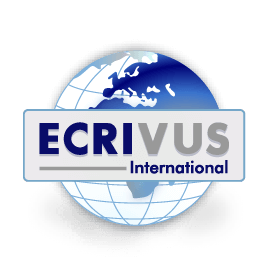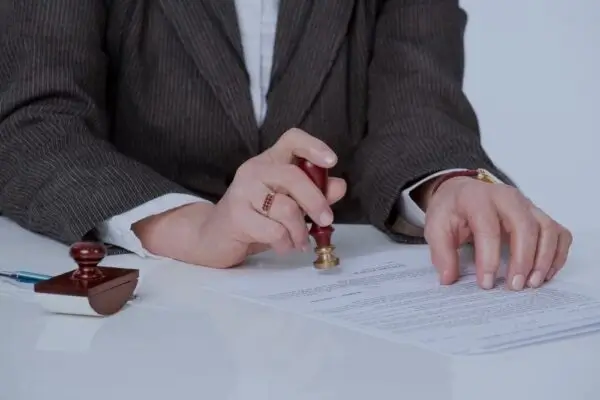
€5 discount?
Discount code: KORTING

The differences between a regular translation and a certified translation
A regular translation and a sworn translation are two different services offered by translation agencies. With a regular translation, the text is translated by a professional translator, while with a sworn translation the translator has taken an oath in court and provided the translation with an official stamp and signature. In this article, we will discuss the differences between these two services.
Regular translation
With a regular translation, the text is translated by a professional translator without any official documents or certificates to be adapted. This translation is often used for general communications, websites, marketing materials, and other non-official documents. The quality of the translation is of great importance in a regular translation.
Sworn translation
A sworn translation is done by a sworn translator who is registered in the register of sworn translators and interpreters. This translator has taken an oath in court and is authorized to official documents to translate, like birth certificates, marriage certificates, diploma's, en andere legal documents. The sworn translation will be provided with an official stamp and signature of the translator.
Ecrivus Multimedia
Ecrivus Multimedia is a full-service translation agency specialized in sworn translations and apostilles. Our sworn translators have years of experience and expertise in translating official documents and ensure accurate and reliable translation. We also offer apostille services for documents that need to be legalized for international use.
Documents that can be translated
There are several types of documents that can be translated, including:
- Birth certificates
- Marriage certificates
- Diploma's
- Notarial deeds
- Criminal records
- Contracts
- Statutes
- Driving licences
- Passports
- And more…
Languages
Our sworn translators specialize in translating to and from various languages, including:
- English
- Spanish
- French
- German
- Chinese
- Russian
- Arabic
- Portuguese
- Italian
- Dutch
- And more…
Conclusion
The difference between a regular translation and a sworn translation lies in the official status of the translation and the competence of the translator. A sworn translation is mandatory for certain official documents, while a regular translation is used for general communication. At Ecrivus Multimedia you can go for both regular and... sworn translations of high quality.
Frequently asked questions
- What is the difference between a regular translation and a sworn translation?
- Which languages can Ecrivus Multimedia translate?
- Which documents can be translated by Ecrivus Multimedia?
A regular translation is done by a professional translator, while a sworn translation is done by a sworn translator with official authority.
Ecrivus Multimedia can translate to and from several languages, including English, Spanish, French, German, Chinese, and more.
Ecrivus Multimedia is possible official documents as birth certificates, marriage certificates, diploma's, en contracts translation, as well as general communication.
A regular translation and a sworn translation are two different types of translations in Dutch. The main difference between the two is that a sworn translation was performed by one sworn translator, while a regular translation is done by a professional translator without sworn authority. Sworn translations are often needed for official documents, such as acts, diploma's and legal documents, which must have legal validity.
A sworn translation is provided with a statement from the sworn translator in which he or she declares that the translation is a faithful and accurate representation of the original document. This statement bears the signature and stamp of the sworn translator, and sometimes also a apostille or legalisation, depending on the country where the document is to be used. A sworn translation therefore has a higher degree of reliability and legal validity than a regular translation.
The rate for one sworn translation is generally higher than for a regular translation, due to the additional certification and responsibility that the sworn translator bears. It also often takes longer to get one sworn translation because the sworn translator must be more careful and may have to carry out additional checks to ensure the accuracy of the translation. This means that a sworn translation generally involves more time and costs than a regular translation.
A sworn translation can only be performed by one sworn translator who is registered in the Register of Sworn Interpreters and Translators (Rbtv). To be sworn in, a translator must take a special oath in which he or she promises to respect the obligation of confidentiality at all times and to carry out the translations in good faith. In addition, the sworn translator must regularly attend further training to stay abreast of current developments in the field.
A regular translation can be made by any professional translator who has the necessary knowledge and experience to translate the text correctly and understandably. Regular translations are often used for commercial purposes, such as marketing materials, websites and business correspondence. Although a regular translation does not have official status, it must be of high quality and meet the client's requirements.
A sworn translation is often asked for legal documents, such as acts by birth, wedding and passing away, notarial acts, and legal contracts. Also diploma's, certificates and others official documents can a sworn translation require if they are used abroad. It is important to know that a sworn translation is only legally valid within the borders of the country where the sworn translator is sworn in.
In short, a sworn translation is distinguished from a regular translation by the swearing in of the translator, the statement of accuracy, the higher costs and time investment, and the legal validity of the document. Although a sworn translation is not always necessary, it can be essential at times to ensure that your documents have been translated correctly and legally. It is therefore important to make the right choice for each type of translation based on your specific needs and purposes.





Apostilles & Legalisaties
2 Products
Sworn translations
129 Products
CV, cover letters
2 Products
Financial translations
4 Products
Legal translations
129 Products
Multimedia
13 Products
Notarial translations (notary)
11 Products
Sworn translations
Trade register extract translation (sworn)
Sworn translations
Certificate of conduct translation (sworn)
Sworn translations
Diploma translation (sworn)
Sworn translations
Notarial deed translation (sworn)
Sworn translations
Translate death certificate (sworn)
Sworn translations
Bank statement translation (sworn)
Sworn translations
Translate birth certificate (sworn)
Sworn translations
Translation of marriage certificate (sworn)
Sworn translations
Certificate of inheritance translation (sworn)
Sworn translations
Translate divorce certificate (sworn)
Sworn translations
Extract from the register of births, deaths and marriages (BRP) translated (sworn)
Sworn translations
Legal document (sworn)
Sworn translations
Translation of marriage contracts (sworn)
Sworn translations
Translation of wills (sworn)
Sworn translations
Grade list translation (sworn)
Sworn translations
Passport translation (sworn)
Sworn translations
Translate identity document (sworn)
Sworn translations
Order translation (sworn)
Legal translations
Translate general terms and conditions (unsworn)
Albanië
KvK-uittreksel met apostille (rechtsgeldig)
Sworn translations
Translate driving licence (sworn)
Sworn translations
Translate tax returns (sworn)
Sworn translations
Declaration of Dutch citizenship translated (sworn)
Sworn translations
Declaration translation (sworn)
Sworn translations
Power of attorney translation (sworn)
Sworn translations
Translate medical records (sworn)
Sworn translations
Invoice translation (sworn)
Sworn translations
Child recognition declaration translated (sworn)
Sworn translations
Residence permit translation (sworn)
Web & App development
PHPbb Forum Installation Service